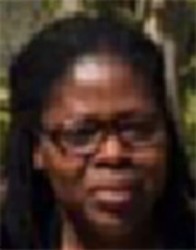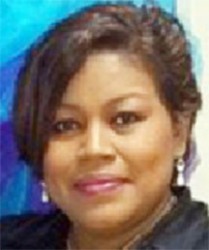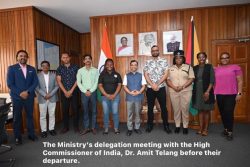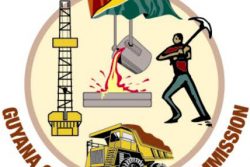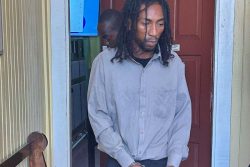In view of International Women’s Day which was observed yesterday, this week we asked women whether they believed enough was being done for women who are exposed to domestic violence in Guyana and if not, what needs to be changed or improved. Their comments follow:
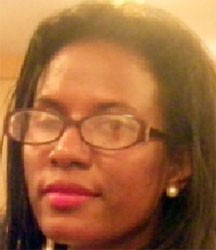
Tiffany Jackson, Guyana Representative for CADVA – ‘I am a survivor of domestic violence and in my opinion I don’t think enough is being done in terms of the judicial aspect of tackling the perpetrators. I can say so because of my personal story, I did reach out to the relevant authority and was never given the type of help that I was looking for which might also result from the negligence of the police. Society needs to see domestic violence as an issue that affects the community, rather than a personal issue between a man and a woman and often times I think the persons in authority who should be taking on the role of protecting us from such violence take it for granted and see it as a private matter where they should not be involved. We need to have better laws enforced protecting our victims and children who may be exposed. We also need to recognize that the population is the strength of a country and I think every citizen should be given the necessary protection and when one can testify, like me that my country failed me in terms of the judicial and security system, that’s a big thing, if I cannot be protected in my own country when I called and cried for the help prior to and even during my attack, I think that is a big blow because if I cannot be protected here, where else can I go? It’s like in the home, if we as parents cannot protect our children, then we are sending them somewhere else and that should not happen.’
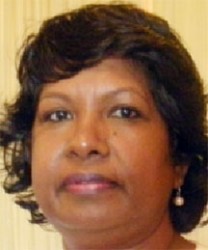
Sukree Boodram, Founder of CADVA – ‘Clear cut straight answer will be no, I personally do not think that enough is being done. I think when cases of domestic violence come to the spotlight, they are covered by the media and then they get lost. I read of the stories of Guyanese women who are killed and I don’t see follow-ups. I see the police went and they took statements, they are doing investigations and then two weeks after that, someone else dies and I don’t see the cases individually getting the justice they deserve which is very, very sad. When someone was murdered, three months later I want to see they are having a trial and another three months later I want to see someone getting sentenced, not five years and six years like Neesa Gopaul, that’s way too long. We need to do more at all levels. I listen to the news and there is too much pointing fingers. If you don’t have consistency and you do not have unity, forget longevity and that is what we as a country will be known for. If you go to Guyana that is what will happen to you; if you marry a Guyanese man that is what will happen to you and we need to stop it.’
Jyoti Hardat, overseas-based Guyanese – ‘Actually, it’s like an outsider looking in and I do not think enough is being done right now, every time I hear the news someone is being murdered. I just heard about Neesa Gopaul and that’s a horrible story. I don’t think that we have enough laws here in Guyana to prevent these things from happening, it’s like a cowboy country. I think that legislation needs to be enforced and

people’s mentality especially needs to be changed. People need to be more open, you can’t just keep everything to yourself.’
Dianne Madray, Regional Coordinator for One Billion Rising – ‘Guyana is our home and I feel enough is not being done. It’s just like the coalition of parties that just took place. We need to find a way for a coalition of our women. I think we have been talking too much and nothing is being done. Women need to put aside their differences, stop being competitive and start being our sisters’ keepers and if that happens imagine how strong our community will be. When I compare Guyana and some of the Caribbean countries with countries that I have travelled to I don’t think that we are doing enough and
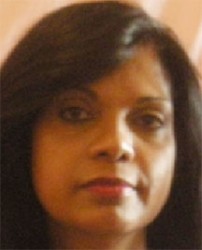
we can’t wait for the government or anybody to do it for us, we have to do it ourselves. Women are hurting and dying and we need to empower them but we will need to start with our young girls because I am hearing about a lot of our young girls who are still in high school and are sexually active, so we need to create a framework and educate our young girls to empower them to create that change. We cannot eradicate domestic violence but we can work to minimize it, we have come a long way but we still have a long way to go.’
Cloyette Harris-Stout, Founder of Guyanese Girls Rock – ‘With the introduction of organizations like CADVA and One Billion Rising which is raising the awareness, people are able to come out and talk about their story. I am not sure if enough is being done about the abusers and the punishment that they get because people got to be accountable for their actions and the community members need to step up. If it’s your neighbour you have to call him and tell him that what he is doing is not nice. The authorities, neighbours and people who are witnessing this need to speak out. We can’t just have shelters but we need to provide counselling to help the victims get out of the situation, we need more programmes to teach skills.’
Leomie Jacobs, businesswoman – ‘I do not think that enough is being done. Some of the women get help while others don’t. In some of the interior villages, a lot of these Amerindian girls are being raped and nothing happening to these guys. The victims are being forced to go back and live in the same situation and the boys make fun of them.’
Ruqayyah Boyer, former Miss Guyana – ‘I believe the process of educating the masses is one that should be ongoing because this is an issue that is just too prominent to go away with a one stop event. There
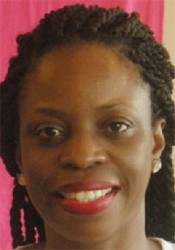
should be more of a social conscience where women alike recognize the responsibility each of us have to speak out to enable mobilization and be a change agent. Understandably there is the shame or the fear of being exposed as a victim and gauging from experience nothing is more liberating than confession to commence the healing process. As a three-time national beauty ambassador for Guyana, I have
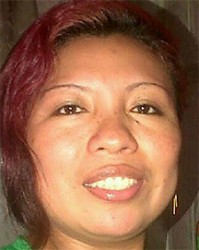
undertaken the charge to help educate, unite with other NGOs with the same mission and overcome this growing scourge with the help of many voiceless individuals. In moving forward I believe support groups can be established across regions, more safe houses for victims to find refuge in and a unity among women to help form a more functional society where burdens are not borne alone.’
Dolleta Govinda, housewife – ‘I believe a lot of effort is being made to help women in Guyana, however women are sometimes afraid or refuse to seek help. The relevant authorities can educate and empower women to realize that an abusive relationship is not normal and it is not love. Counselling and providing security when needed can also be helpful and abusers also need to be educated on the negative impact their actions have on their family and loved ones.’
Alexis Stephens, educator – ‘Enough is not being done, if we look in the newspapers, we will see that women are being murdered which shows clearly that enough is not being done. The Domestic Violence Act was a step that was taken to minimize the situation but the act by itself is not preventing anything and even though we have legislation people are not doing what they are supposed to do, because the problem is beyond the legislation, it is rooted in culture and especially the patriarchal culture but again the domestic violence is against men and children as well. The question of what needs to be done is not as simple as it sounds and it requires all of us to be actively involved, the church, school and civil society. We have to look at all the elements of the society and we have to start at the primary level. What kind of things our children are exposed to, the books they read, the television they look at and the music they listen to, is it suggesting that violence is okay.’
Melva Alleyne, confidential secretary – ‘Enough is not being done for women who are exposed to domestic violence. The following are suggestions of what can be done: 1. The police force needs to be adequately trained to deal with reports of
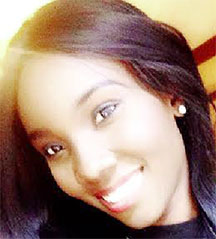
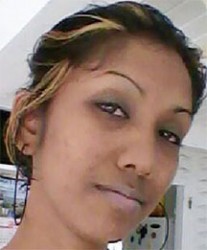
domestic violence. In most instances they turn a blind eye on such reports referring to it as man and woman story, which they don’t want to get involved with. This should not be the stance they should take. Instead do their job and let the court make the final decision. 2.
The government should provide substantive monetary contributions to victims since in many instances they are unable to adequately provide for themselves and their offspring.
Thereby, they will be able to move away from their abusers and better fend for themselves and dependents. 3. Country-wide campaigns should be done, especially in the hinterland regions where courts are non-existent (or courts being called once per month) and bribery is the order of the day. These victims will learn of services/protection available to them to deal with their problems; so they do not have to remain in their abusive relationships.’
